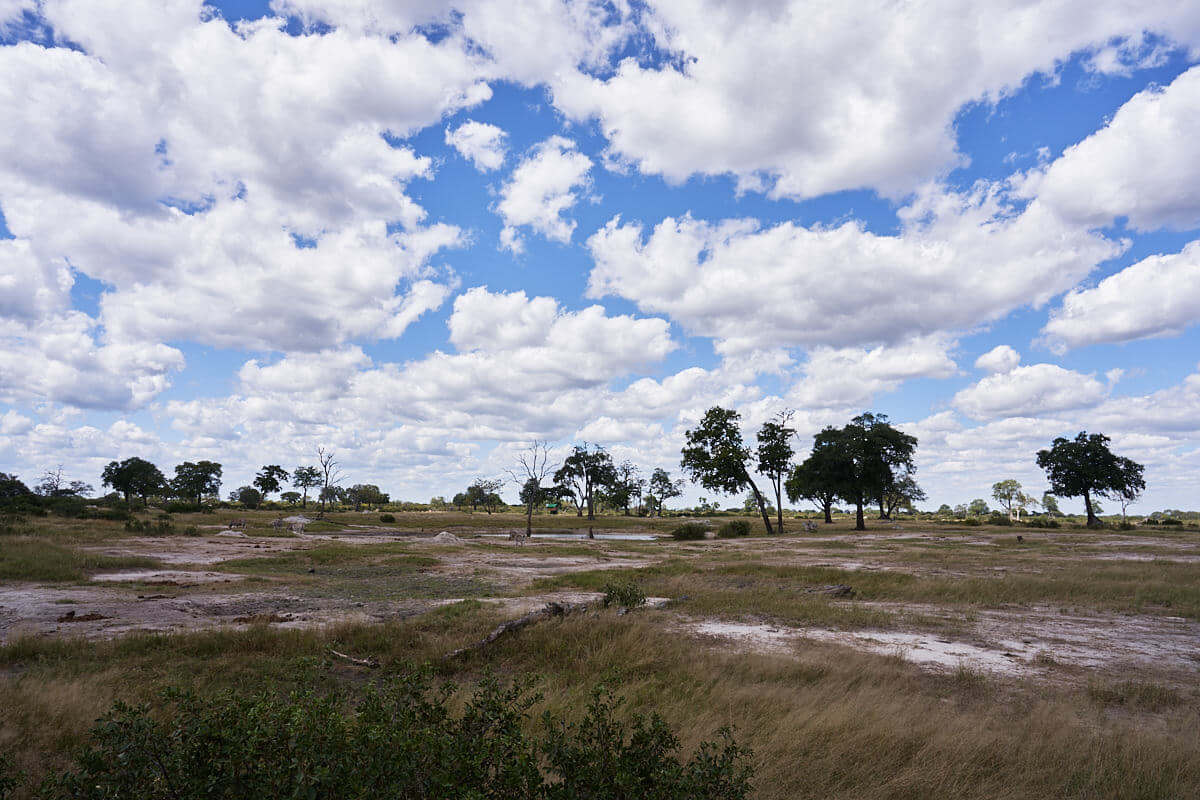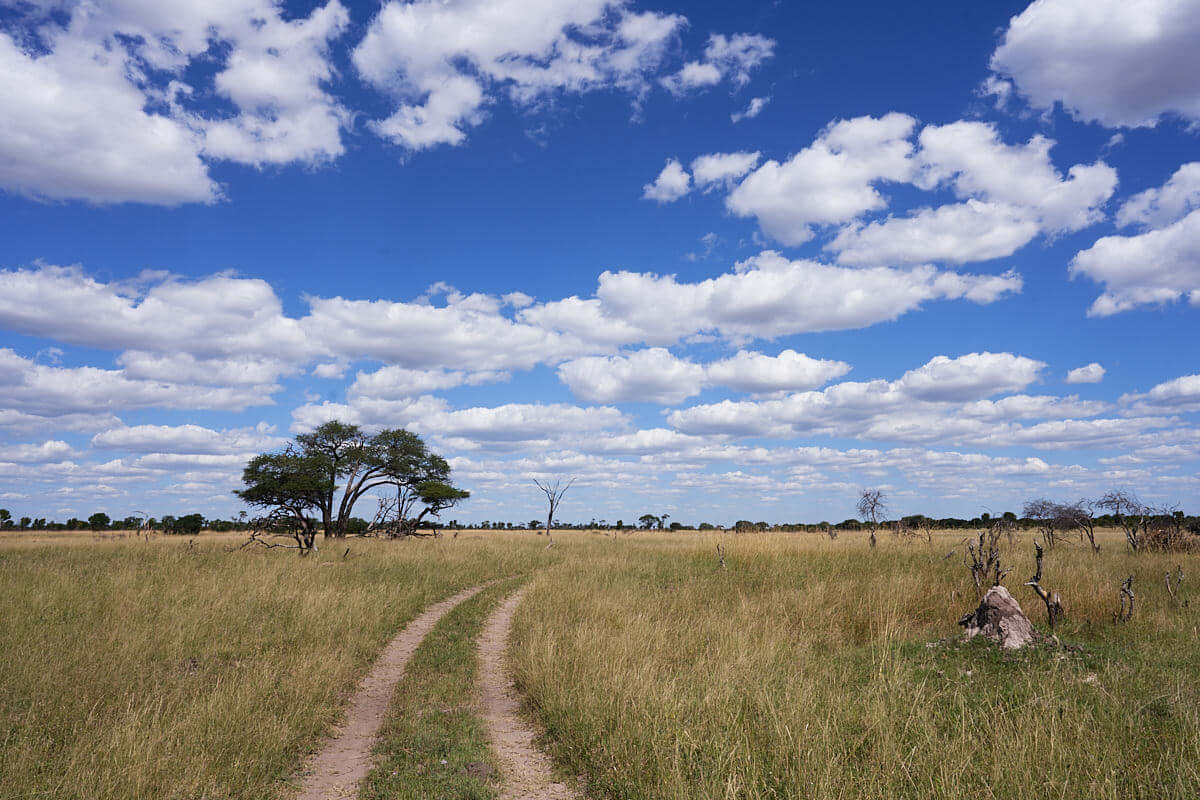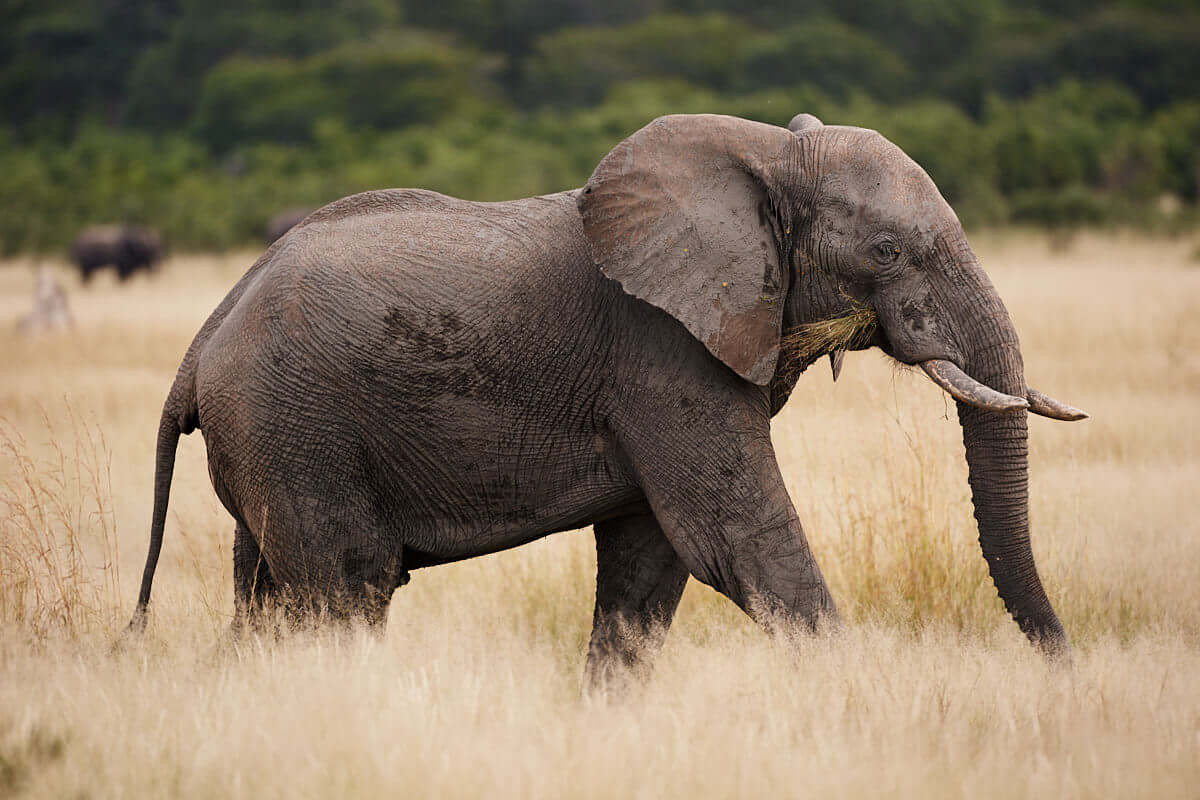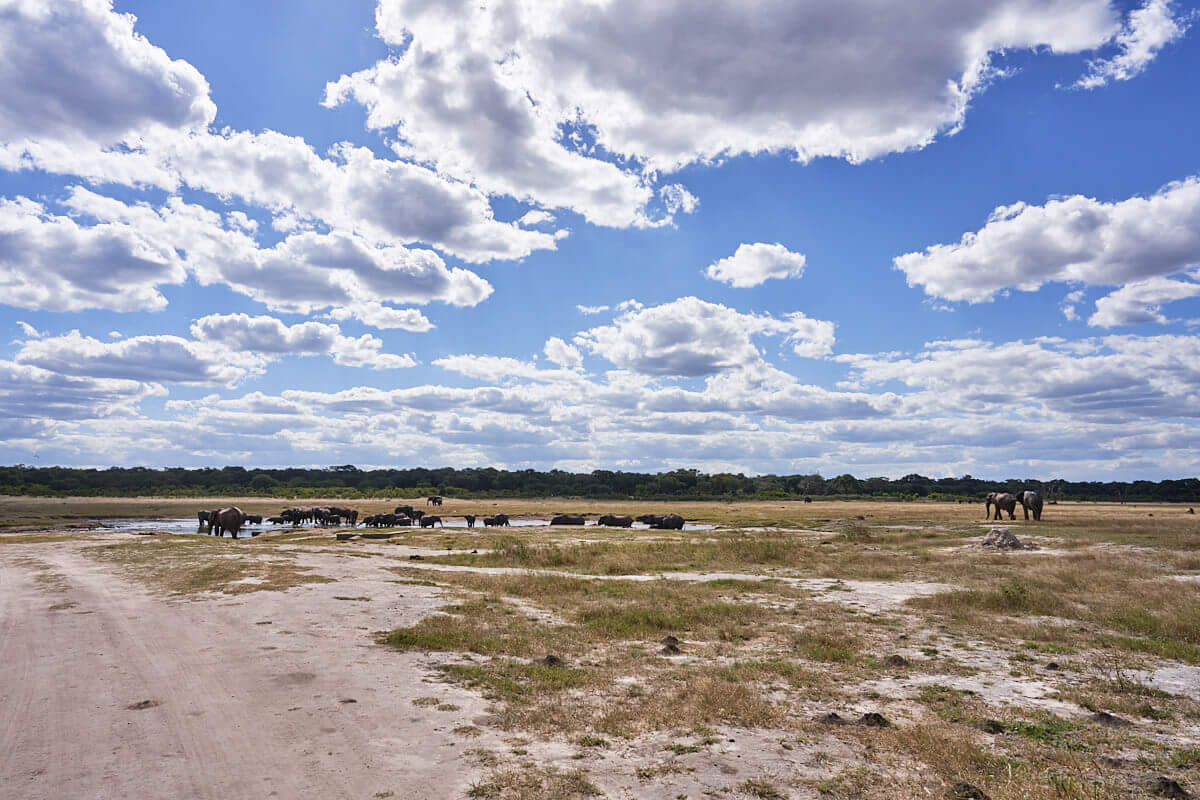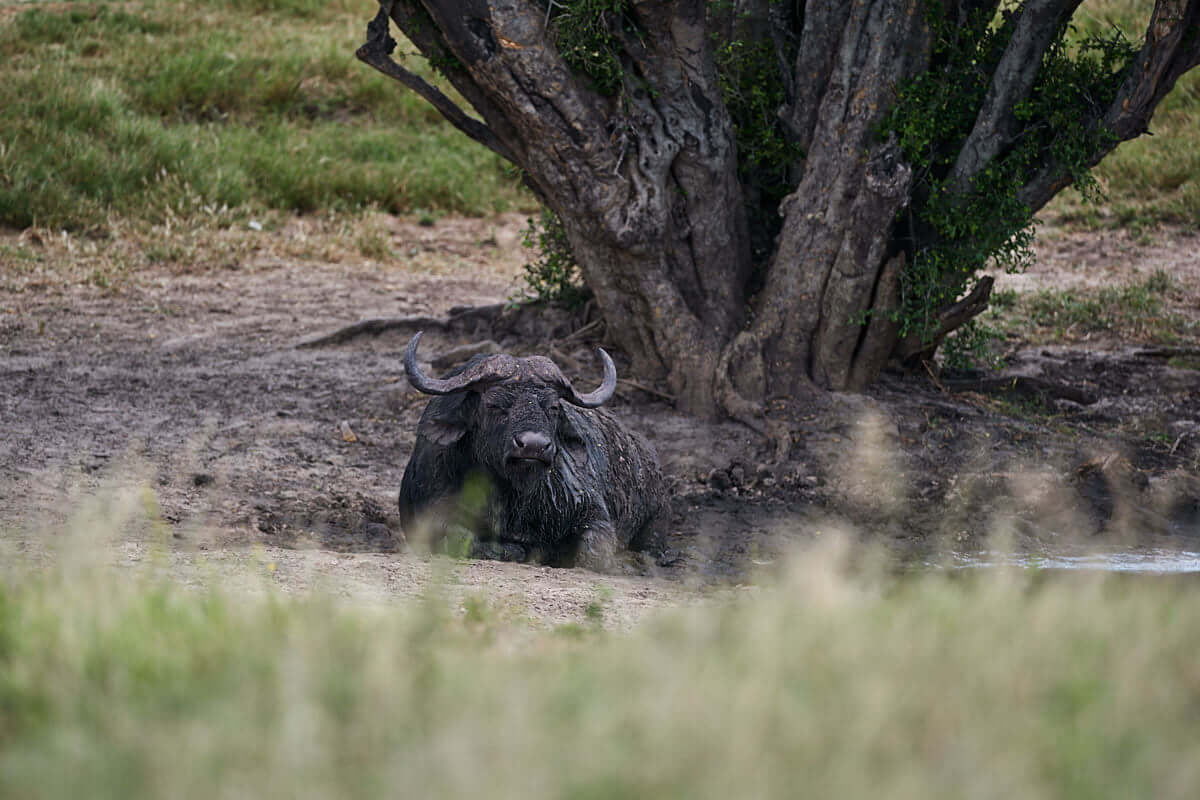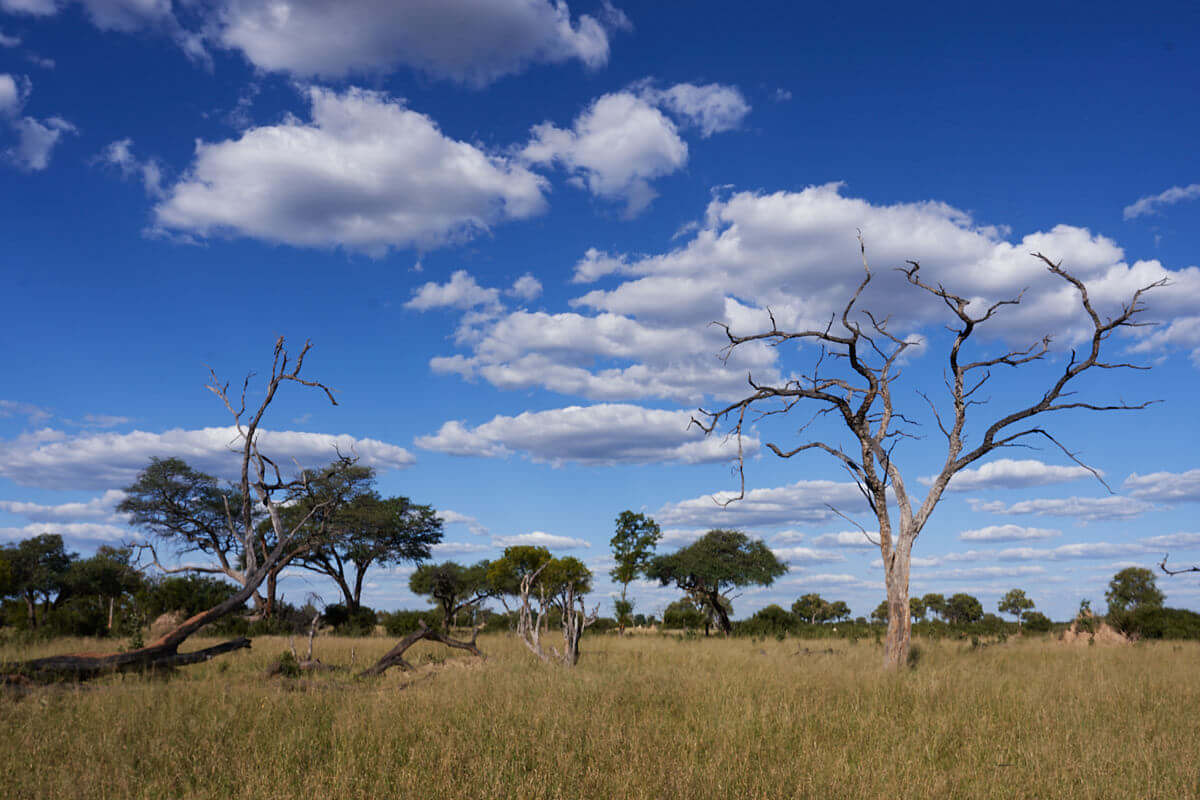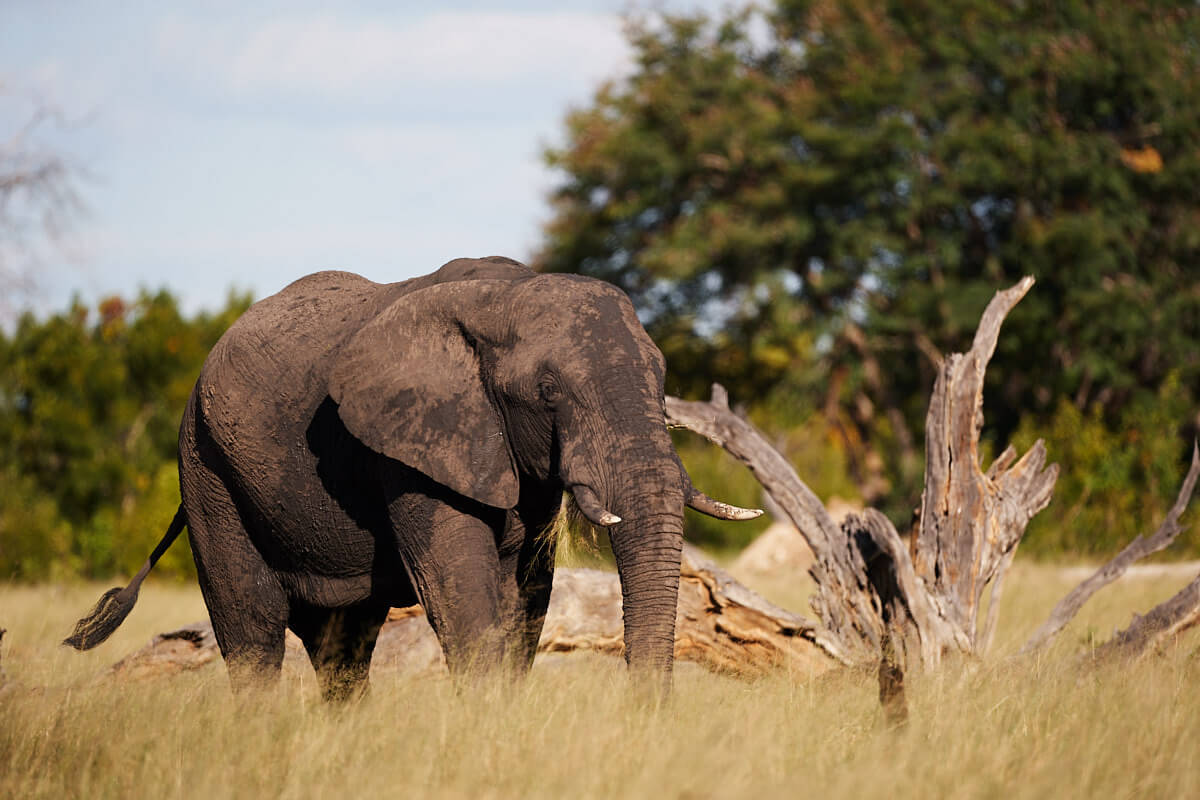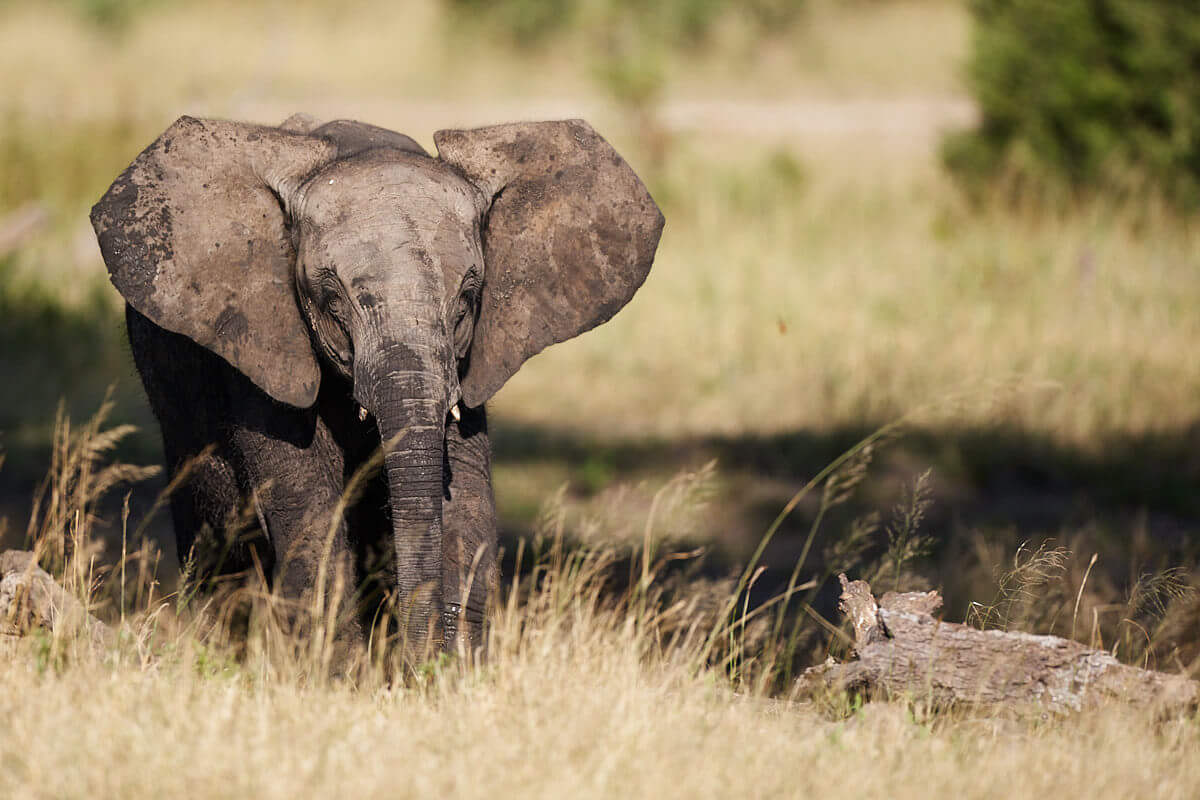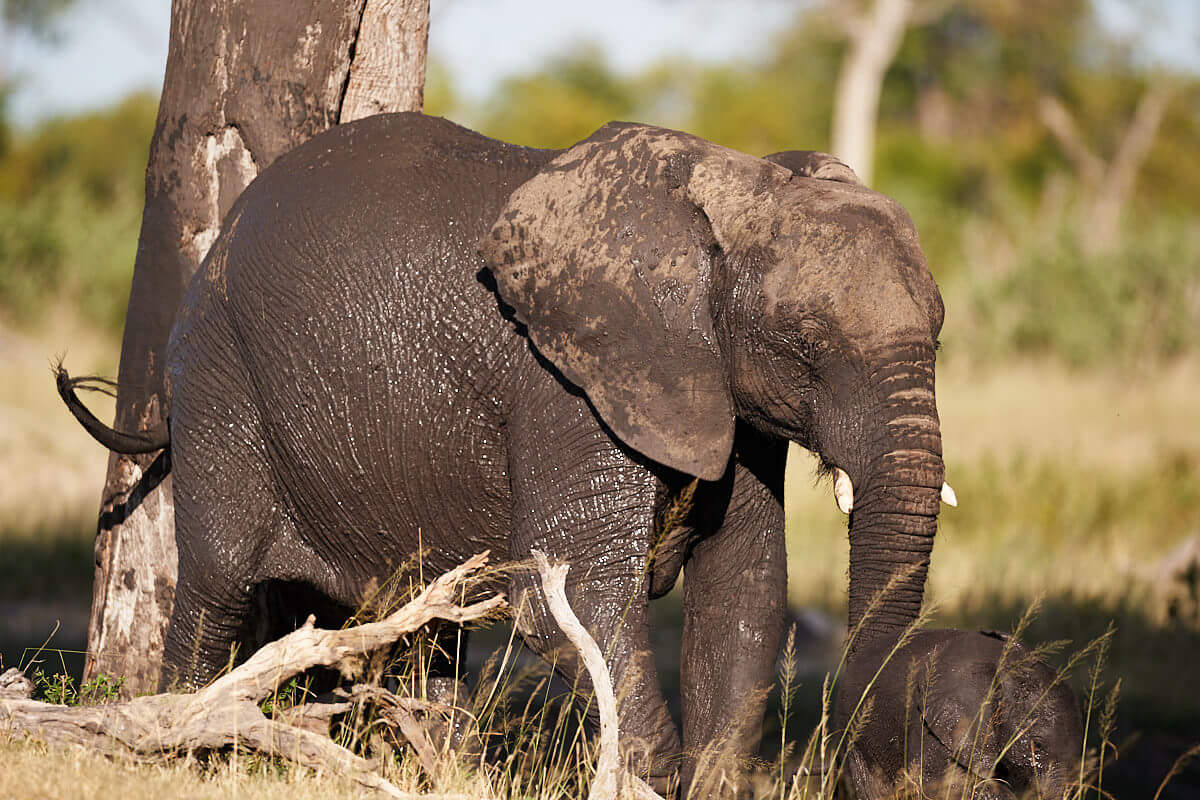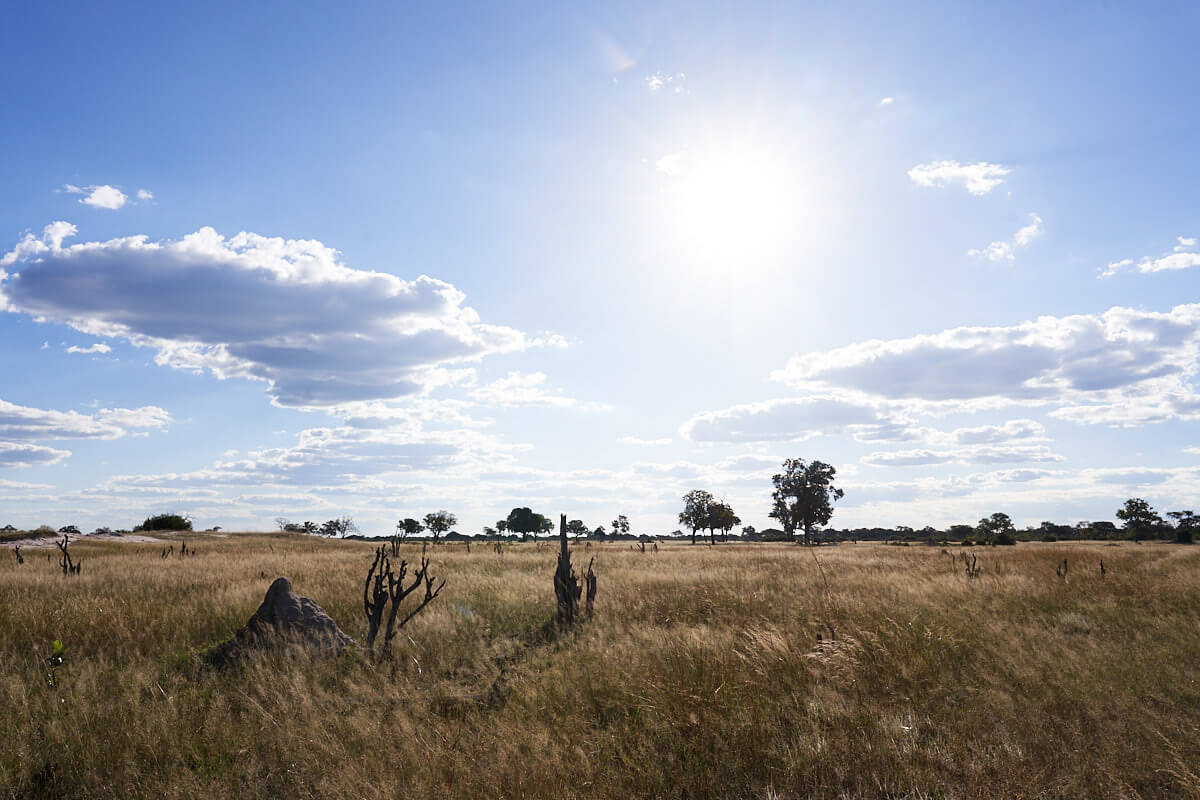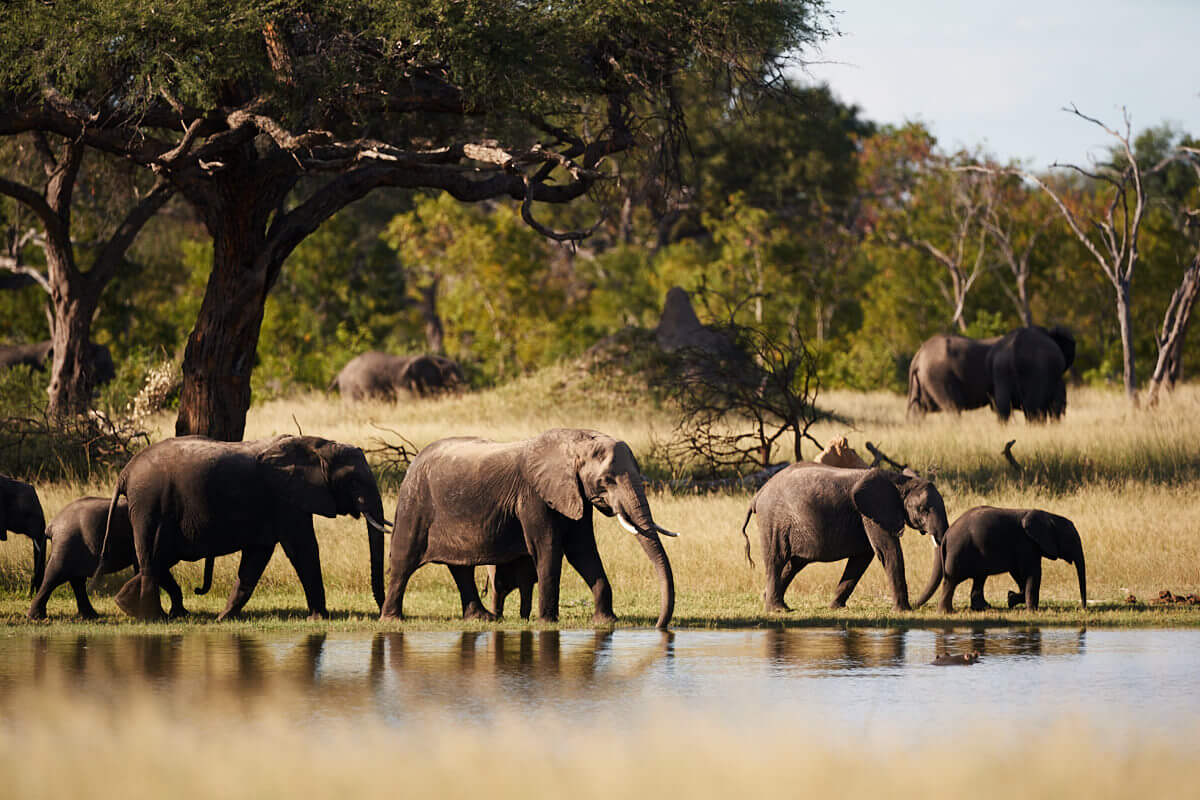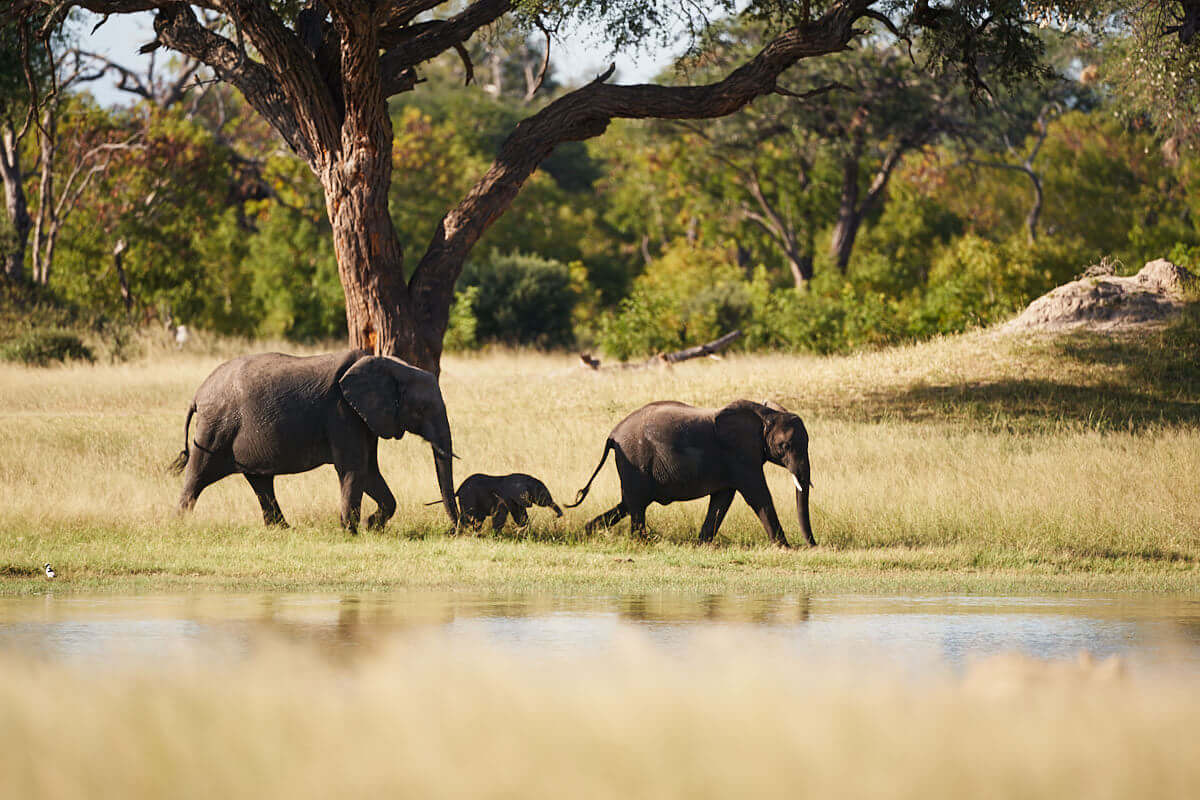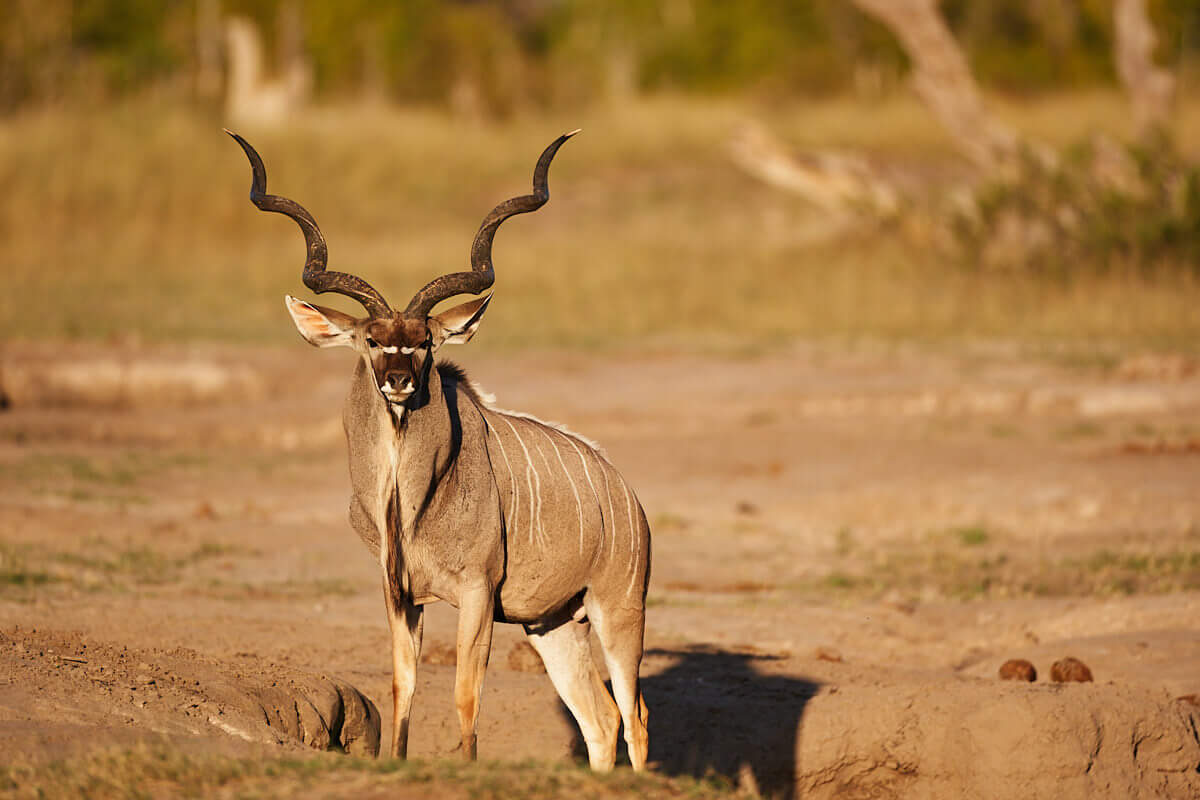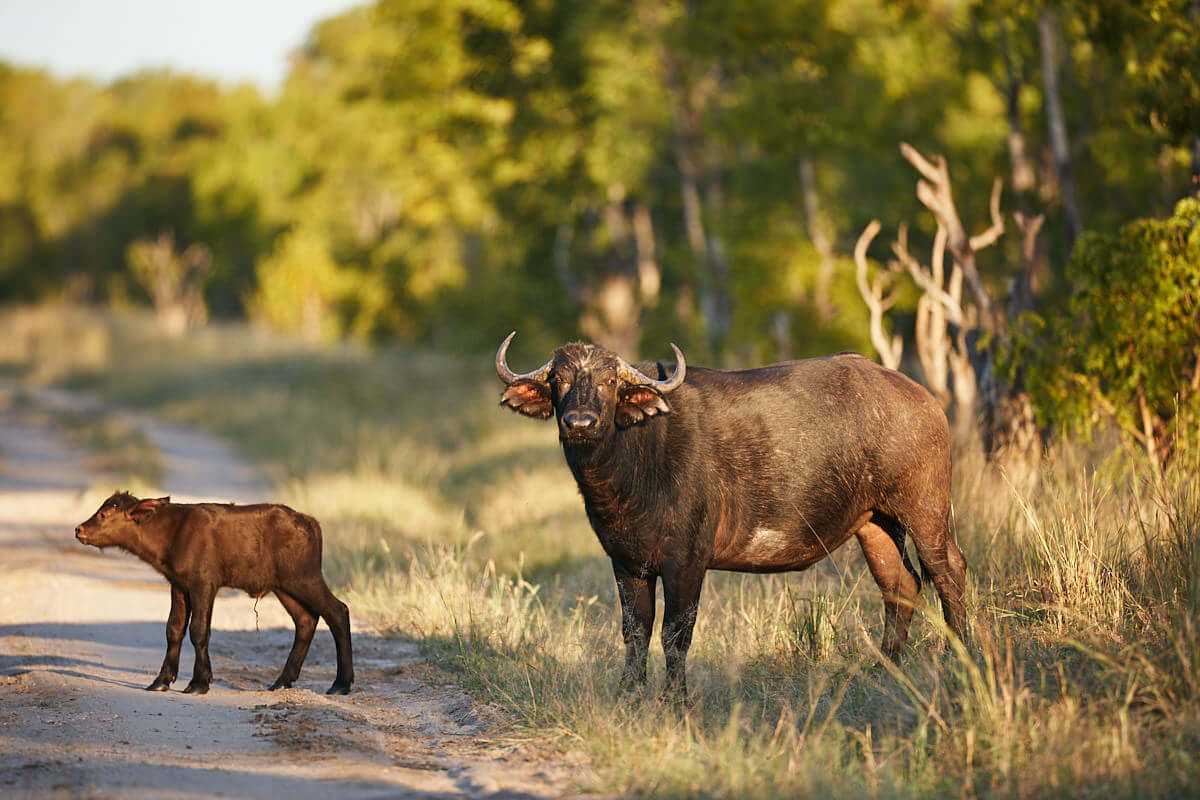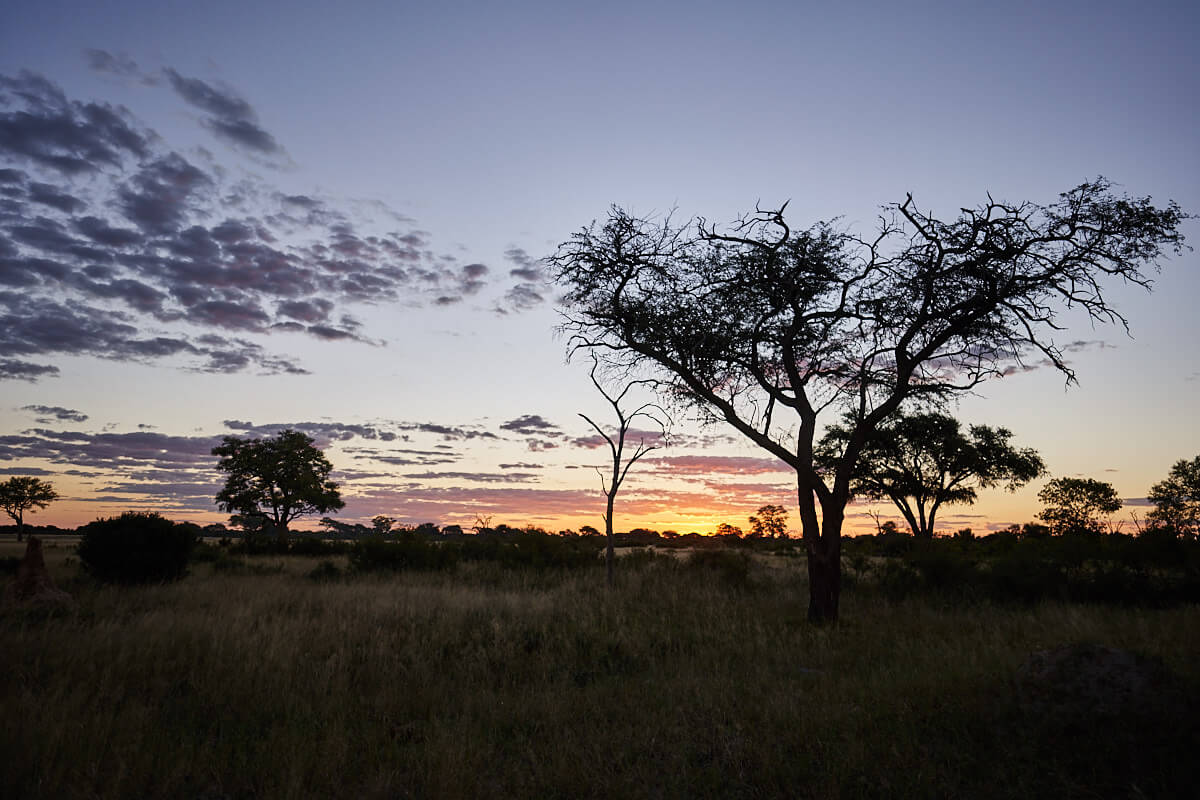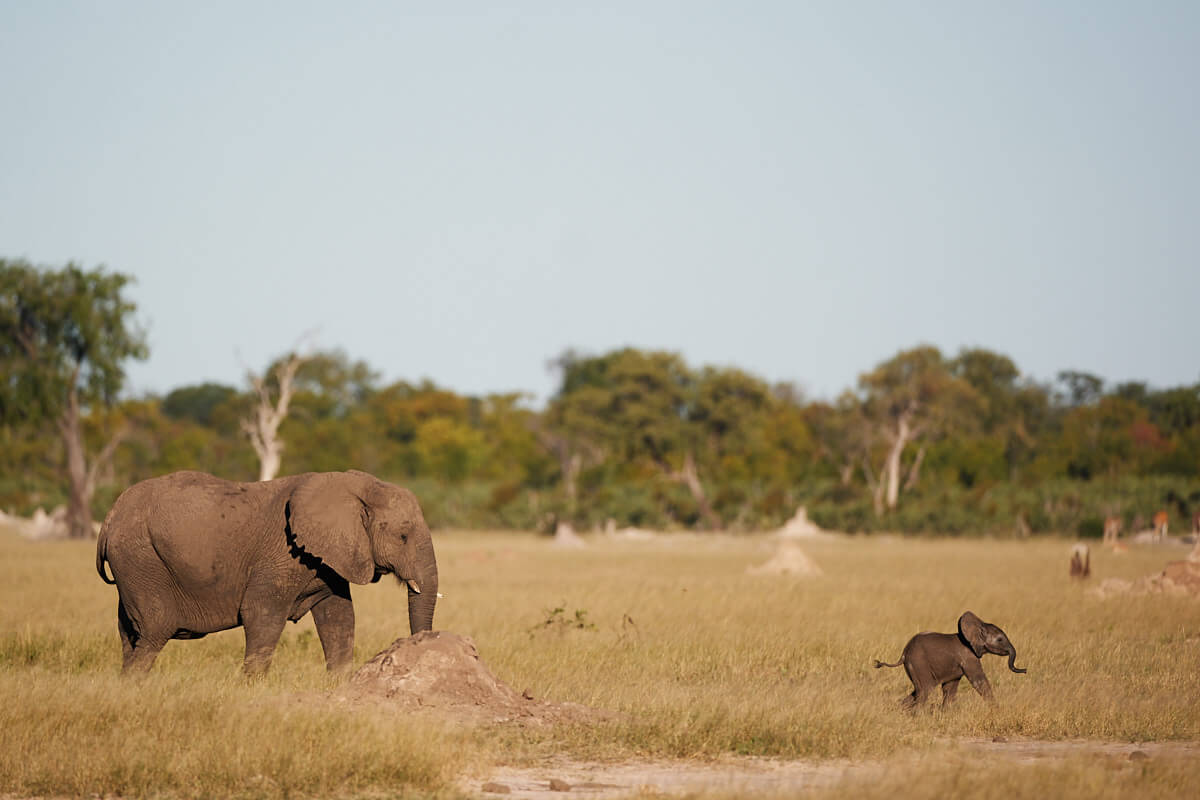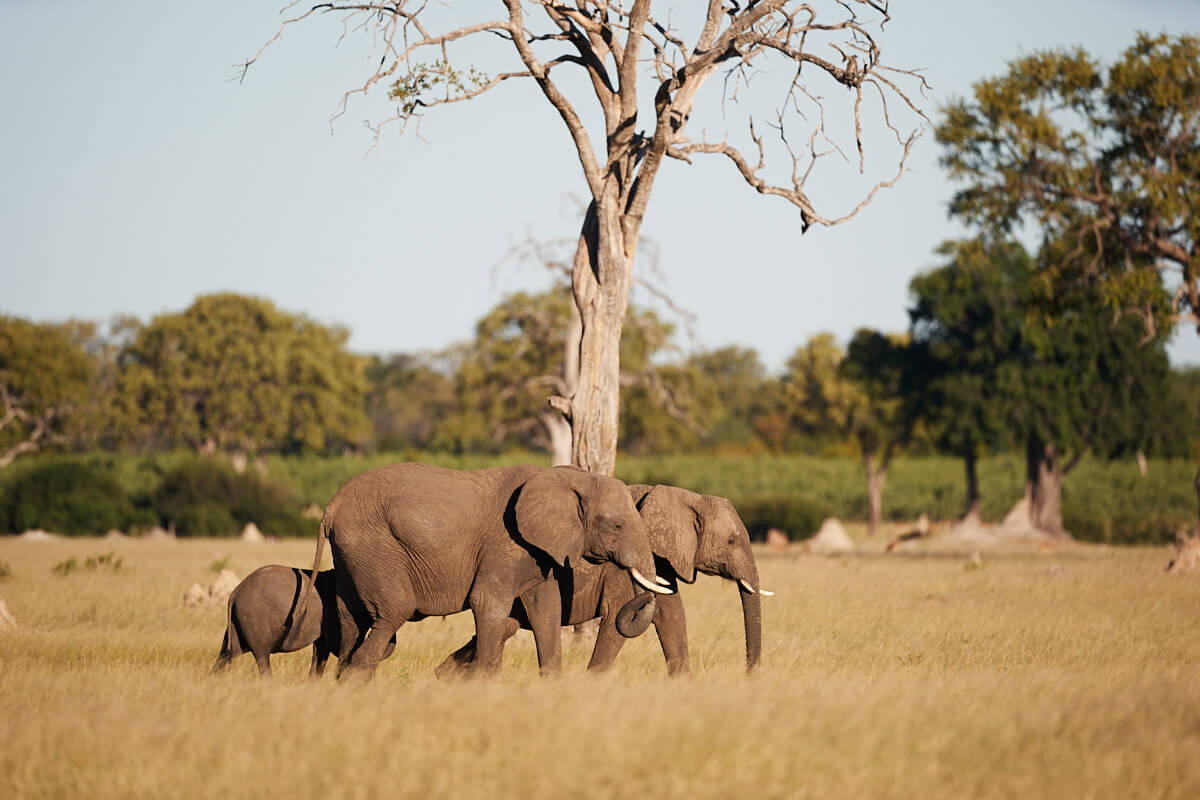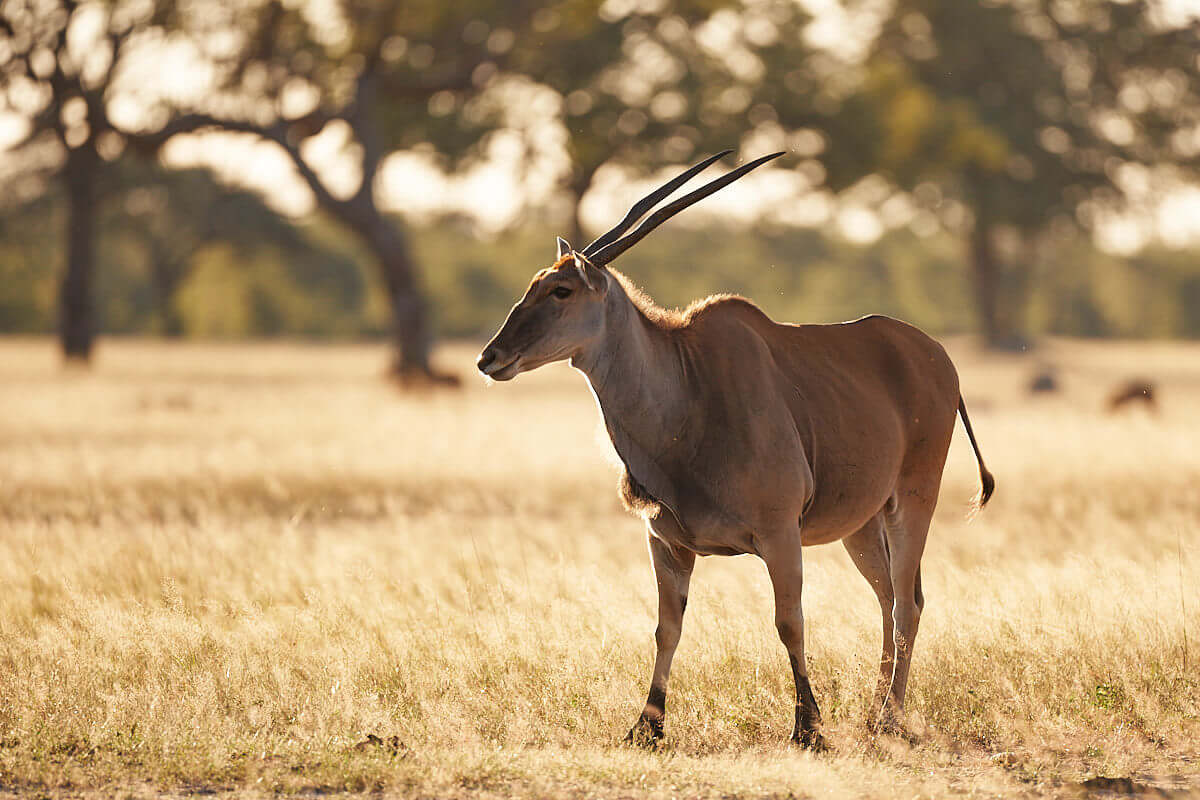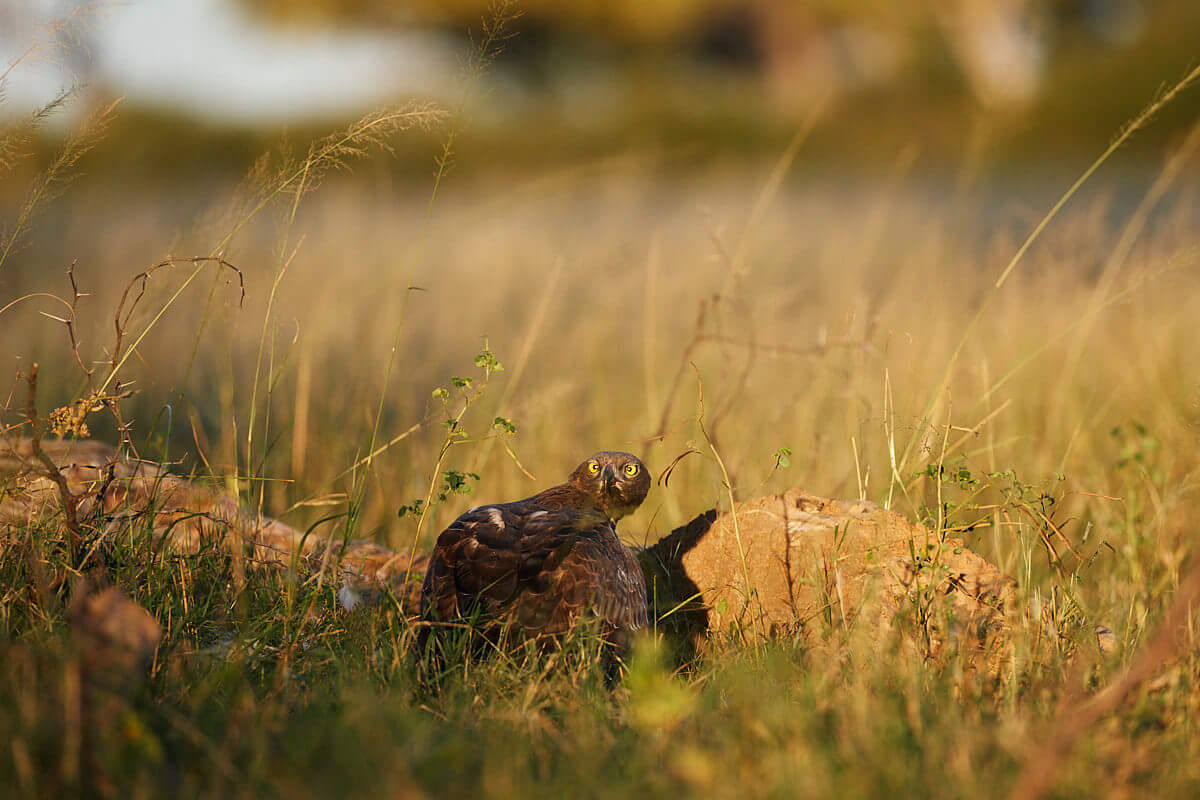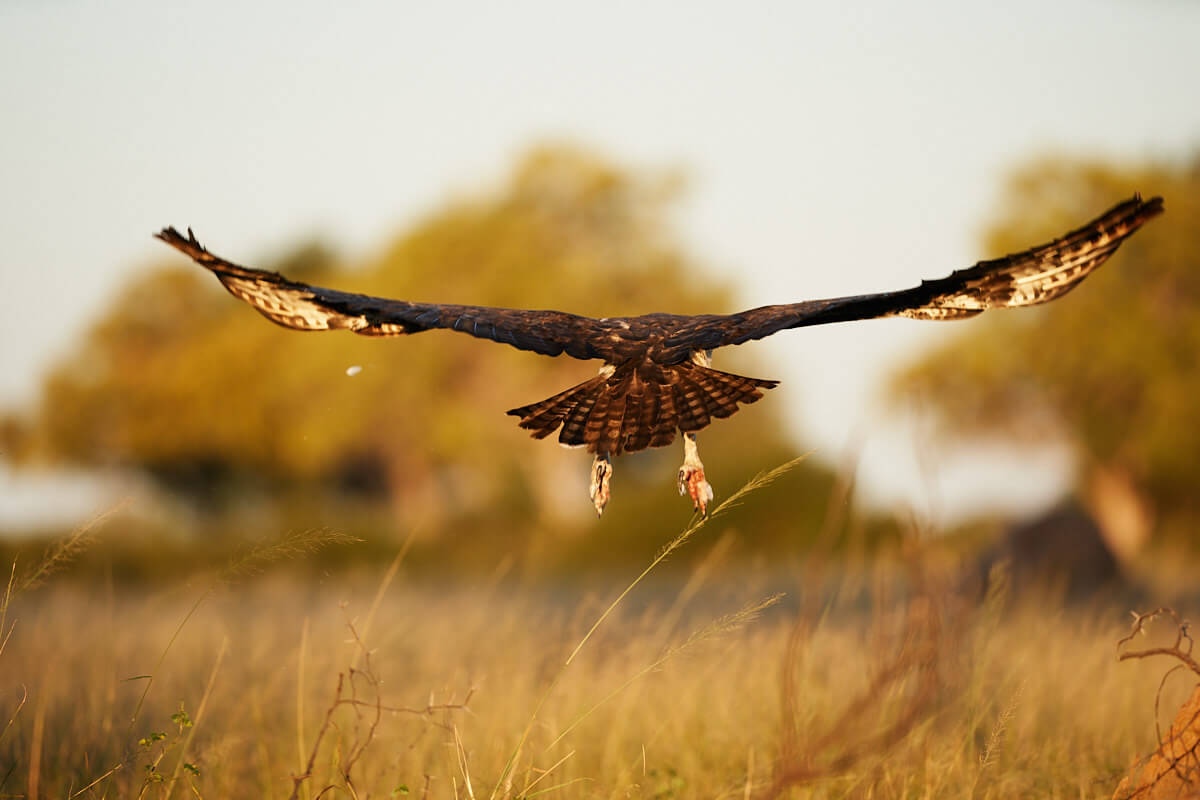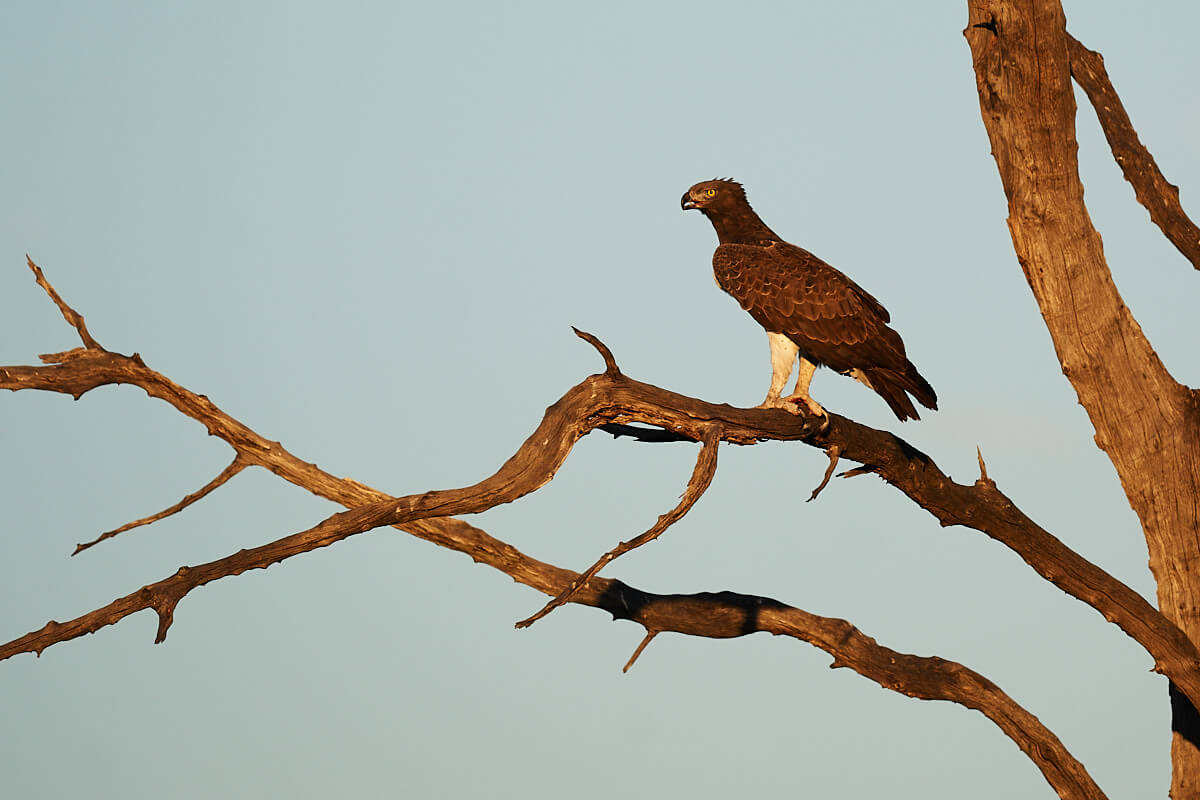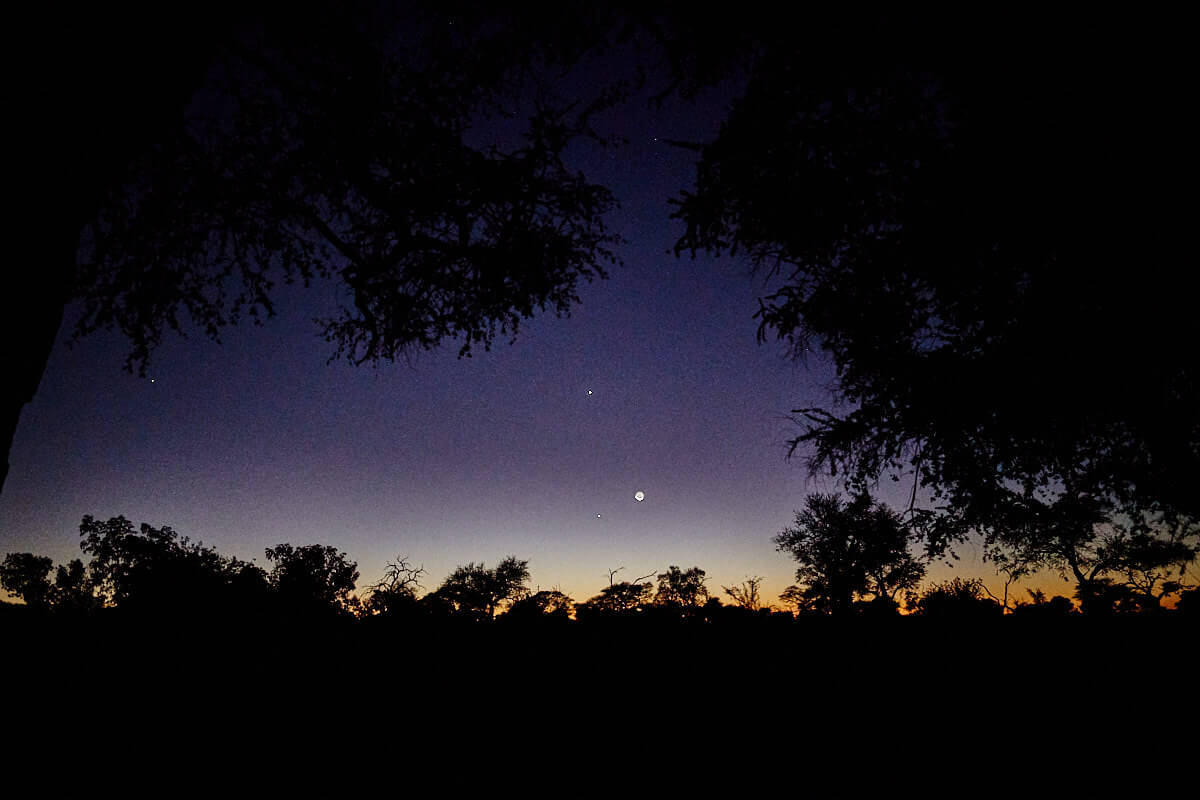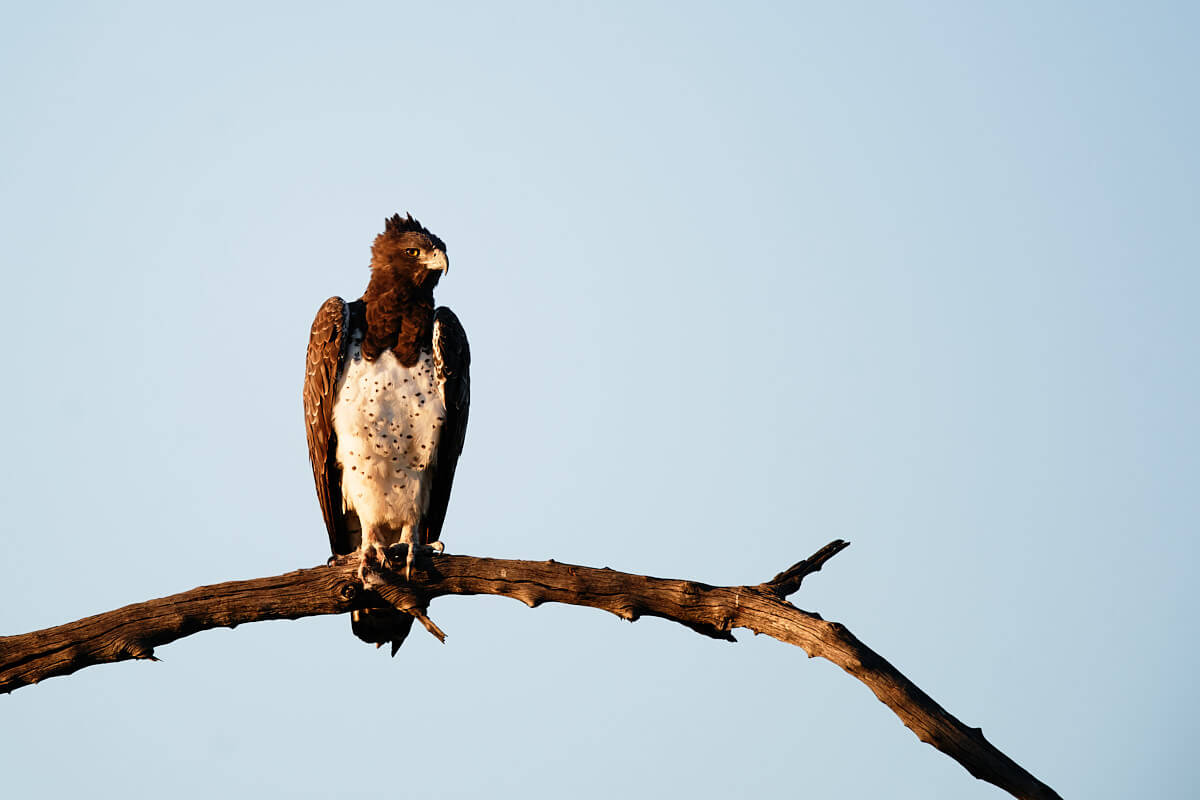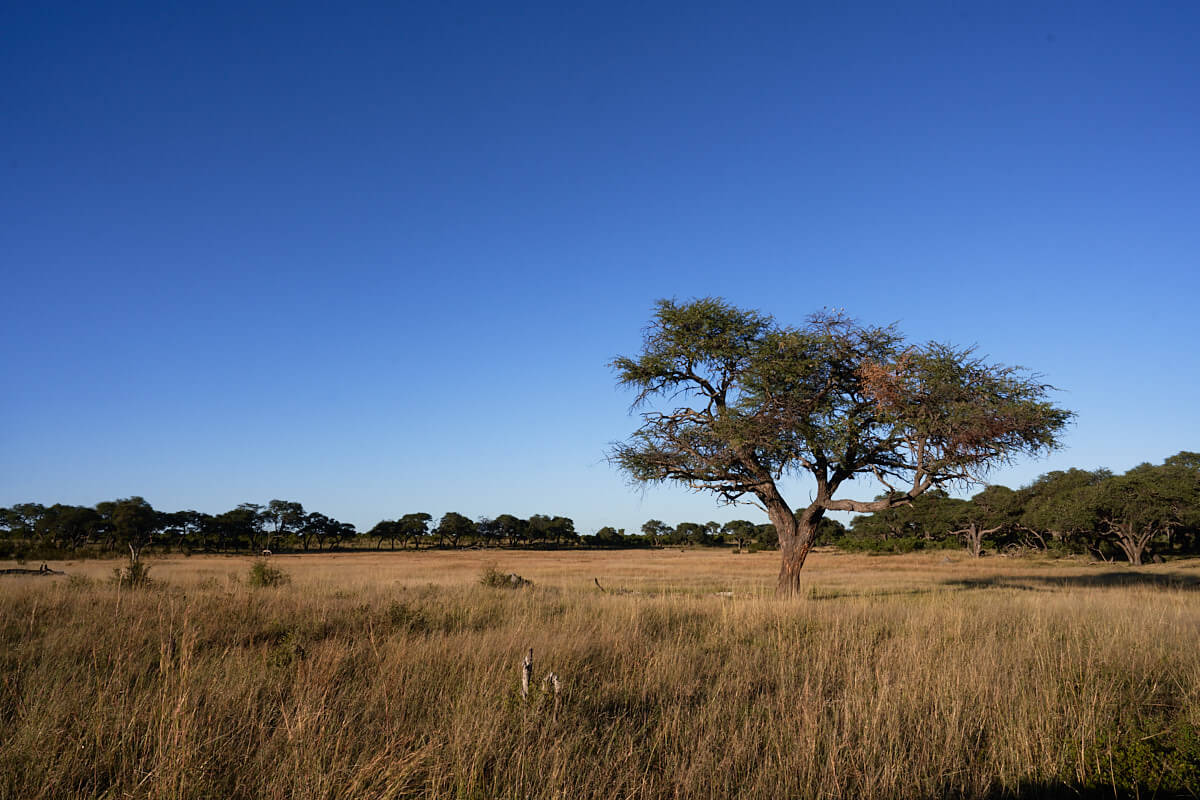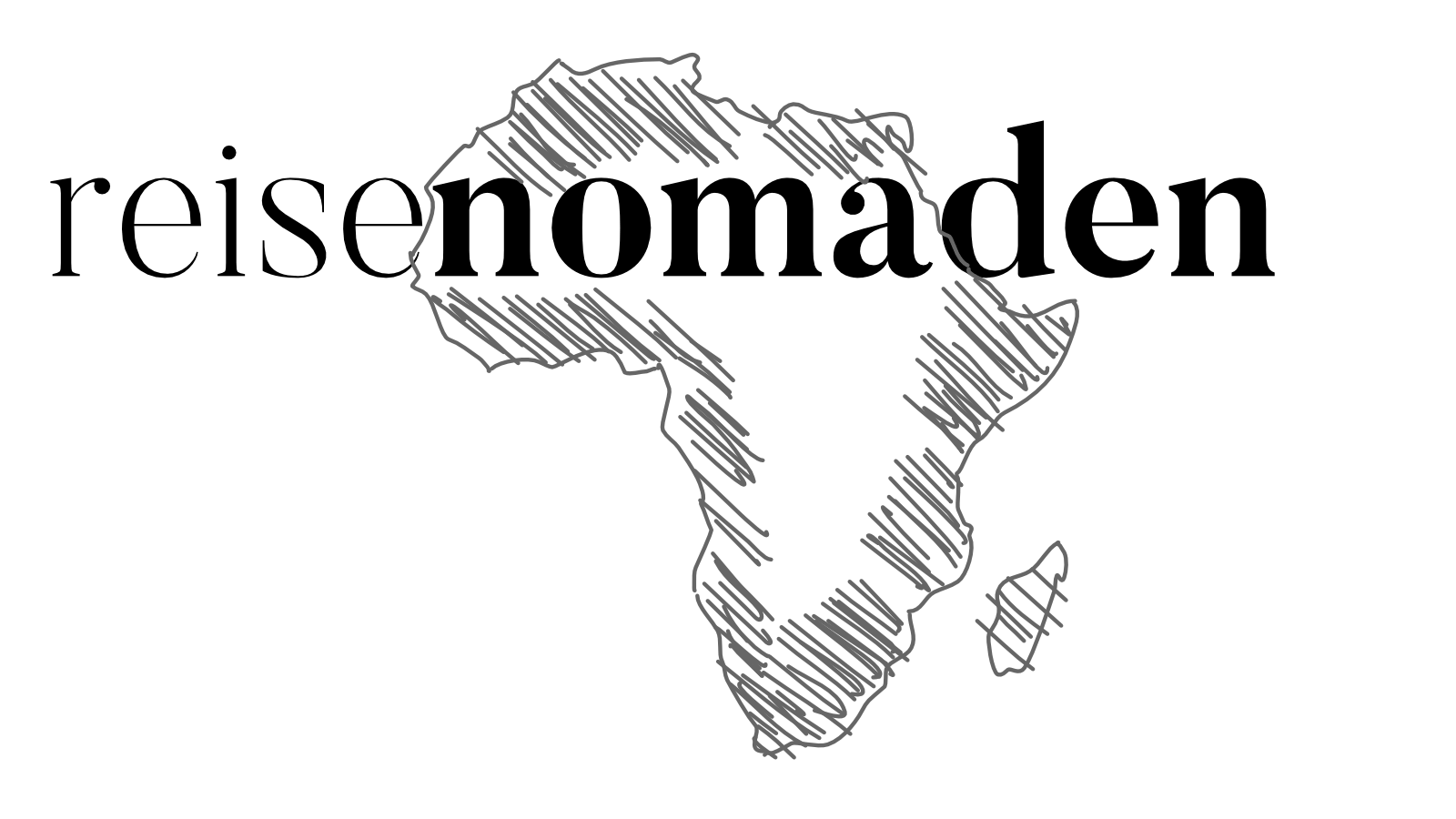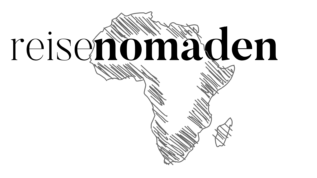We reached Hwange National Park
Hwange National Park is together with Mana Pools the most famous National Park in Zimbabwe. It is located south to southeast of Victoria Falls and is the easiest National Park to reach from there and benefits accordingly. We decided to enter the park via the Main Camp (there are three entrances in total) and stay – if possible – south of it. There are some so-called exclusive Campsites which are all booked through Harare.
We just drove to the gate, asked if and if so, which campsites were available and in the end we could book the “best” campsite with a saving of 60%. First, we were told “sorry, but these campsites are all fully booked”. Guido unpacked his charm, flirted with the lady in the office, told her how great her country is, and already it was: “Let me have another look – maybe I can do something for you.” Bingo!
We headed to Ngweshla Camp and were happy about what we saw along the way. The park is definitely different, and we really liked it. In parts, it reminded us of East Africa with the Savannah and tall dry grass. In other areas we found mixed forest or mopane forests. There are quite excellent trails off the main route there that are easily passable and lead through the forests. We had quite wonderful experiences there with the gray giants – what else ?
Night action
This part of Hwange is also home to the Presidential Elephants. A great story of a great woman fighting for a herd of elephants. There is a documentary about the whole story that was on vimeo. It’s not longer available.
All I found was a trailer on YouTube. The first night was extremely noisy and full of activity. We heard three lions roaring all night about 15-20 minutes apart. The last time we heard them was at 05:50 in the morning, with one of them staying about 500-800 meters away. We could pinpoint the direction, obviously. 20 minutes later we set off but did not manage to find them.
No matter what we did – they remained invisible. Three lodge vehicles joined us, and together we saw tracks of the entire pack at the nearby waterhole. They had small cubs with them, and they were playing and resting there. We could not track the pack with four vehicles. Our curse to find a lion, which we heard roaring at night, in the morning remained. We failed again – that can be quite frustrating. Grandiose elephant encounters comforted us over it.
Elephant encounter in the forest of Hwange
For example, in the afternoon we drove along the path through the forest and encountered several cows with their calves. Just before the end of the forest, a young bull stood on the pathway and set about shaking fruit from an Ana tree. The whole thing is done by folding the trunk and taking the tree trunk between the tusks.
Then the elephant jerks his head against the trunk and looks what happens. In his case, countless fruits fell from the tree and leaves trickled. The fruits were quickly eaten – but accepting that at some point there will be no more fruits available is not always so easy. Even huge branches falling down could not stop him from trying again and again.
surrounded
We stood about 10 meters away with the engine off and watched the spectacle. Three more young bulls joined us in the forest in Hwange and the fight for the fruit could begin. More trees were “checked” and no more than five minutes passed when we were suddenly surrounded by the entire herd. There was no forward and no back anymore.
There were many cows with very little calves, and we were lucky that all of them were very relaxed. They noticed us, checked the situation and probably rated us as unproblematic because they walked around our car as if we were part of the forest. We could enjoy this wonderful situation for about 45 minutes before they moved on, and we set off to look for the lions again.
Buffalo and a martial Eagle
On the way we came across a large herd of buffalo, and we took this as a good sign, but we could not find the lions until the end of our stay. They seemed to have disappeared from the face of the earth because even all the guides at the various lodges knew only one question: “Where are the Lions?” Finally, at the waterhole in front of our “front door” we saw a Martial Eagle eating a White Stork (the same ones that nest in Germany and Switzerland) and the next morning he was still sitting on the same tree and willingly let us look at him again and take pictures.
We left Hwange the next day, visited the Painted Dog Conservation (Painted Dog = Wild Dog) and left visibly impressed with some ideas on how we could support them and made the short journey to a nearby lodge and campsite where we would rest for one more night before facing the hustle and bustle of Victoria Falls.
